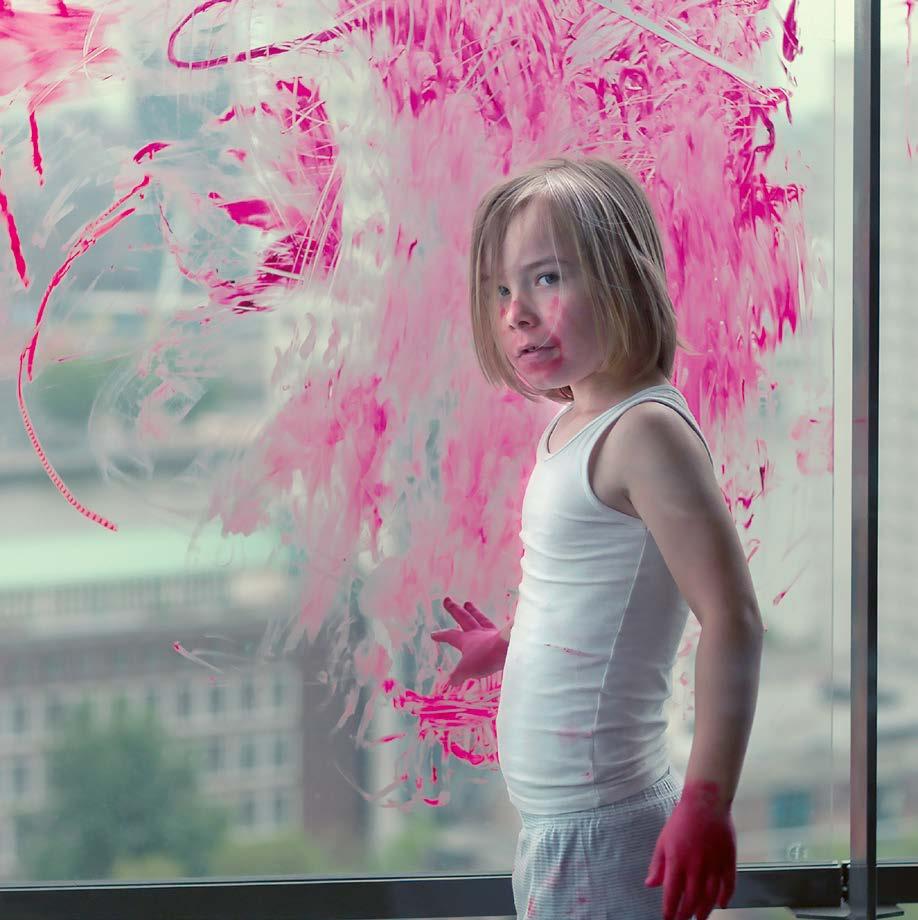
3 minute read
27 Decaying from within In Jenneke
IFFR RTM Porcelain
Jenneke Boeijink
Advertisement
Decaying from within
Jenneke Boeijink

Writer-director Jenneke Boeijink’s Porcelain starts in spectacular fashion with a shot (filmed by a drone) of the Rotterdam skyline, writes Geoffrey Macnab.
We draw closer and closer to a high rise apartment in which wealthy property developer Paul, his wife Anna, an expert in ceramics, and their son Thomas live, seemingly in prosperity and domestic harmony.
The film’s title comes from the idea that porcelain may look perfect but that it is decaying from within. Anna explains this in the course of her job but the metaphor is obvious. Cracks in the facade of the perfect family life soon begin to appear. The little boy has behavioural problems. He is prey to fits of unexplained aggression.
“I have this feeling about modern western society that we are all sometimes aiming at the wrong thing,” Boeijink explains the underlying themes of her film. “We are trying to have a great career, friends, a big house. We dress properly. Everything is picture perfect. It’s maybe an illness of modern society that it is more about surface than it is about the inside.” In Porcelain, supported by the Production Incentive, there is a stark contrast between the family’s experiences in their apartment “in the sky in Rotterdam” and the much more idyllic, natural world they later encounter in the Italian countryside. Boeijink describes Porcelain as “a modern dark fairy tale.” set in the sterile, affluent world of the family when they seem to be on top of the world. “The picture perfect world is cracking in part 2 and, in part 3, we are in this rough kind of nature.” The sound editing also changes, shifting from urban and industrial noise in the early scenes to natural sounds in the rural Italian scenes.
Boeijink set out to cast actors who weren’t immediately familiar to Dutch audiences. Laura De Boer, who plays Anna, is Dutch but based in Berlin and works more in Germany than in The Netherlands. Tom Vermeir, who plays the arrogant patriarch, is Belgian.
Finding the boy proved a struggle. Boeijink had chosen a young actor but then production was postponed. “Two years later, we couldn’t make the movie with that boy. He was too old and so we had to start the whole process again.”
The director was determined to find someone young enough to act without self-consciousness, who would forget that the cameras were there. “He had to be old enough to take into account things that I wanted to direct but also young enough to be spontaneous.” Eventually, she found Neathan van der Gronden, a kid from the Utrecht region who had never acted before and was able to play Thomas without worrying about his motivation and what drove his destructive behaviour.
Throughout the course of the film, its visual style changes. The opening is The film screened in IFFR’s RTM section after making its premiere in Cairo late 2019. Boeijink wondered if the story and images would be universal enough to appeal to an international audience, but those concerns proved unnecessary as the viewers in Egypt responded warmly to the film, picking up on what its director believes are universal themes about family, work, wealth and the illusion of the perfect life.
Porcelain was in selection for CineMart (IFFR’s co-production market) in 2014 but took several years to finance. The director had started the project with her thenhusband, Thibaud Delpeut, a well known theatre director.
“In the beginning, it went really smoothly,” Boeijink remembers of the lengthy financing process. However, potential backers would always ask whether this was a horror film, a fantasy or a drama. Some were uncomfortable that they couldn’t pigeonhole the genre. She pays tribute to producer Sander Verdonk at New Amsterdam Film Company who stayed with the project from the start and guided it towards completion.










